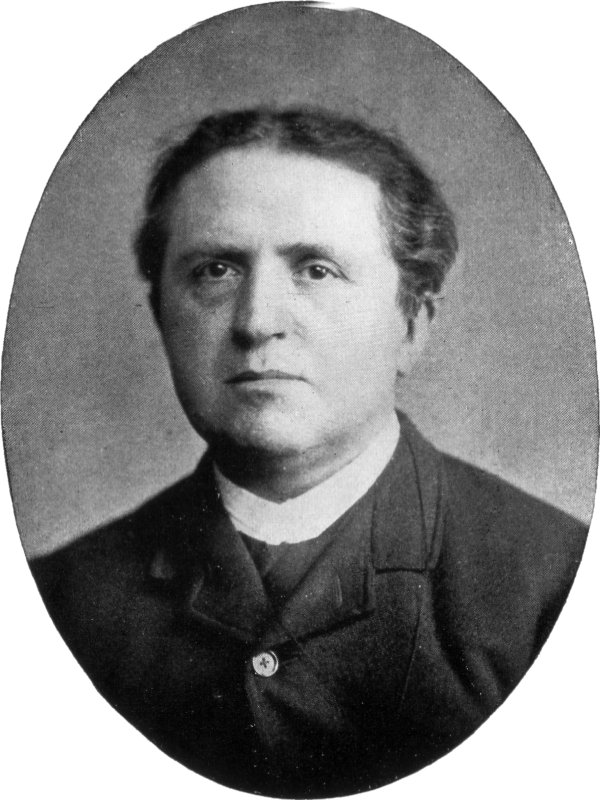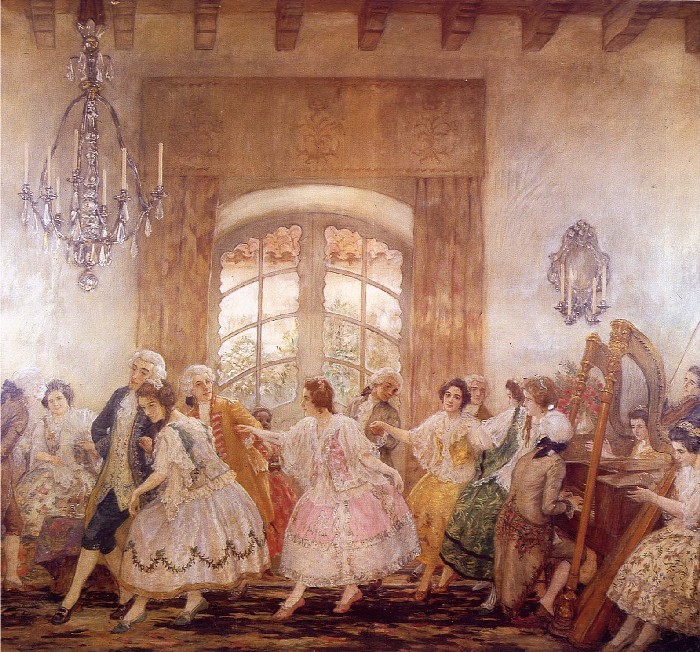|
Pillarisation
Pillarisation (a calque from the ) is the vertical separation of society into groups by religion and associated political beliefs. These societies were (and in some areas, still are) divided into two or more groups known as pillars (). The best-known examples of this have historically occurred in the Netherlands and Belgium, but have also occurred across multiple European countries. Each pillar may have its own social institutions and social organizations. These may include its own newspapers, broadcasting organisations, political parties, trade unions, farmers' associations, banks, stores, schools, hospitals, universities, scouting organisations and sports clubs. Such segregation means that many people have little or no personal contact with members of other pillars. Europe Netherlands The Netherlands had at least three pillars, namely Protestant, Catholic and social-democratic. Pillarisation was originally initiated by Abraham Kuyper and his Christian Democratic and neo ... [...More Info...] [...Related Items...] OR: [Wikipedia] [Google] [Baidu] [Amazon] |
Anti-Revolutionary Party
The Anti-Revolutionary Party (, ARP) was a Protestant conservative and Christian democratic political party in the Netherlands. The party was founded in 1879 by Abraham Kuyper, a neo-Calvinist theologian and minister who served as Prime Minister between 1901 and 1905. In 1980 the party merged with the Catholic People's Party (KVP) and the Christian Historical Union (CHU) to form the Christian Democratic Appeal (CDA). History History before 1879 The anti-revolutionary parliamentary caucus had existed since the 1840s. It represented orthodox tendencies within the Dutch Reformed Church. Under the leadership of Guillaume Groen van Prinsterer the anti-revolutionaries became a real political force, which opposed the liberal tendencies within the Dutch Reformed Church and the liberal tendencies within Dutch politics. Their three values were "God, the Netherlands, and the House of Orange". An important issue was public education, which in the view of the anti-revolutionaries ... [...More Info...] [...Related Items...] OR: [Wikipedia] [Google] [Baidu] [Amazon] |
Free-minded Democratic League
The Free-thinking Democratic League (, VDB) was a progressive liberal political party in the Netherlands. Established in 1901, it played a relatively large role in Dutch politics, supplying one Prime Minister, Wim Schermerhorn. The League is a predecessor of two of the major Dutch political parties, the conservative liberal People's Party for Freedom and Democracy (VVD) and the social democratic Labour Party (PvdA). The social liberal Democrats 66 also claims that it and the VDB are ideologically connected. Name Like some other liberal parties in Europe, such as the Free Democratic Party of Switzerland, the party did not have the word "liberal" in its name because of its connotation with conservative liberalism. Instead it used the term ''vrijzinnig'', which is difficult to translate into English. The term, which literally translated would be "free-thinking" or "free-minded" has meanings in the Protestant church referring to more liberal or latitudinarian tendencies in the chur ... [...More Info...] [...Related Items...] OR: [Wikipedia] [Google] [Baidu] [Amazon] |
Christian Historical Union
The Christian Historical Union (, CHU) was a Protestant Christian democratic political party in the Netherlands. The CHU is one of the predecessors of the Christian Democratic Appeal (CDA), into which it merged in September 1980. History 1879–1908: Predecessor parties An important inspiration for the CHU was Guillaume Groen van Prinsterer (1801–1876), who coined the terms "anti-revolutionary" and "Christian-historical". In 1879, the Anti-Revolutionary Party (ARP) was founded as a Protestant mass party by Abraham Kuyper. Unlike previous anti-revolutionary politicians such as Groen van Prinsterer, Kuyper was convinced God's will could be translated to politics. As part of Kuyper's antithesis, the ARP worked together with Roman Catholics in the Coalition, with the goal of achieving equal funding for religious schools (the school struggle). After the 1888 election and the subsequent formation, this strategy resulted in the Mackay cabinet, comprising Anti-revolutionari ... [...More Info...] [...Related Items...] OR: [Wikipedia] [Google] [Baidu] [Amazon] |
Liberal State Party
The Liberal State Party, "the Freedom League" (, LSP), was a conservative liberal political party in the Netherlands from 1921 to 1948. It is historically linked to the People's Party for Freedom and Democracy (VVD), a major Dutch political party. History The LSP was founded on 16 April 1921 as a merger of the mainstream liberal Liberal Union, the conservative liberal League of Free Liberals, the minor Economic League and the single seat parties of the Neutral Party and the Middle Class Party. They were joined by the General Political Party, who lacked parliamentary representation. These were all the liberal parties in the Netherlands except for the progressive-liberal Free-thinking Democratic League (VDB). The merger was forced by the constitutional revision of 1918 implementing universal suffrage and proportional representation. The two biggest parties (the Liberal Union and the League of Free Liberals) had lost a considerable number of seats with the implementation of ... [...More Info...] [...Related Items...] OR: [Wikipedia] [Google] [Baidu] [Amazon] |
Reformed Political Party
The Reformed Political Party ( , SGP) is a conservative Reformed ChristianThese sources describe the SGP as a Calvinist (Reformed Christian) political party: * * * * political party in the Netherlands. The SGP is the oldest political party in the Netherlands existing in its present form, and has been in opposition for its entire existence. Since 1925, it has won between 1.5% and 2.5% of the votes in general elections. Owing to its orthodox political ideals and its traditional role in the opposition, the party is considered a testimonial party. History Foundation The SGP was founded in 1918 by orthodox Protestants led by Yerseke pastor Gerrit Hendrik Kersten, some of which originated from the Protestant Anti-Revolutionary Party (ARP). After the Pacification of 1917, compulsory voting and proportional representation was introduced in the Netherlands. The founders did not want to vote for existing parties, but saw an opportunity for a smaller party because of proportional re ... [...More Info...] [...Related Items...] OR: [Wikipedia] [Google] [Baidu] [Amazon] |
Belgium
Belgium, officially the Kingdom of Belgium, is a country in Northwestern Europe. Situated in a coastal lowland region known as the Low Countries, it is bordered by the Netherlands to the north, Germany to the east, Luxembourg to the southeast, France to the south, and the North Sea to the west. Belgium covers an area of and has a population of more than 11.8 million; its population density of ranks List of countries and dependencies by population density, 22nd in the world and Area and population of European countries, sixth in Europe. The capital and Metropolitan areas in Belgium, largest metropolitan region is City of Brussels, Brussels; other major cities are Antwerp, Ghent, Charleroi, Liège, Bruges, Namur, and Leuven. Belgium is a parliamentary system, parliamentary constitutional monarchy with a complex Federation, federal system structured on regional and linguistic grounds. The country is divided into three highly autonomous Communities, regions and language areas o ... [...More Info...] [...Related Items...] OR: [Wikipedia] [Google] [Baidu] [Amazon] |
Christian Democratic
Christian democracy is an ideology inspired by Christian social teaching to respond to the challenges of contemporary society and politics. Christian democracy has drawn mainly from Catholic social teaching and neo-scholasticism, as well as the Neo-Calvinist tradition within Christianity; it later gained ground with Lutherans and Pentecostals, among other denominational traditions of Christianity in various parts of the world. During the nineteenth century, its principal concerns were to reconcile Catholicism with democracy, to answer the " social question" surrounding capitalism and the working class, and to resolve the tensions between church and state. In the twentieth century, Christian democrats led postwar Western and Southern Europe in building modern welfare states and constructing the European Union. Furthermore; in the late twentieth and early twenty-first century, Christian democracy has gained support in Eastern Europe among former communist states sufferi ... [...More Info...] [...Related Items...] OR: [Wikipedia] [Google] [Baidu] [Amazon] |
Calque (linguistics)
In linguistics, a calque () or loan translation is a word or phrase borrowed from another language by literal translation, literal word-for-word or root-for-root translation. When used as a verb, "to calque" means to borrow a word or phrase from another language while translating its components, so as to create a new word or phrase (lexeme) in the target language. For instance, the English word ''skyscraper'' has been calqued in dozens of other languages, combining words for "sky" and "scrape" in each language, as for example in German, in Portuguese, in Dutch, in Spanish, in Italian, in Turkish, and ''matenrō'' in Japanese. Calques, like direct borrowings, often function as linguistic gap-fillers, emerging when a language lacks existing vocabulary to express new ideas, technologies, or objects. This phenomenon is widespread and is often attributed to the shared conceptual frameworks across human languages. Speakers of different languages tend to perceive the world through ... [...More Info...] [...Related Items...] OR: [Wikipedia] [Google] [Baidu] [Amazon] |
Upper-class
Upper class in modern societies is the social class composed of people who hold the highest social status. Usually, these are the wealthiest members of class society, and wield the greatest political power. According to this view, the upper class is generally distinguished by immense wealth which is passed on from generation to generation. Prior to the 20th century, the emphasis was on ''aristocracy'', which emphasized generations of inherited noble status, not just recent wealth. Because the upper classes of a society may no longer rule the society in which they are living, they are often referred to as the old upper classes, and they are often culturally distinct from the newly rich middle classes that tend to dominate public life in modern social democracies. According to the latter view held by the traditional upper classes, no amount of individual wealth or fame would make a person from an undistinguished background into a member of the upper class as one must be born in ... [...More Info...] [...Related Items...] OR: [Wikipedia] [Google] [Baidu] [Amazon] |
Latitudinarian
Latitudinarians, or latitude men, were initially a group of 17th-century English theologiansclerics and academicsfrom the University of Cambridge who were moderate Anglicans (members of the Church of England). In particular, they believed that adhering to very specific doctrines, liturgical practices, and church organizational forms, as did the Puritans, was not necessary and could be harmful: "The sense that one had special instructions from God made individuals less amenable to moderation and compromise, or to reason itself." Thus, the latitudinarians supported a broad-based (''sensu lato'', with "laxitude") Protestantism. They were later referred to as broad church (see also Inclusivism). Examples of the latitudinarian philosophy underlying the theology were found among the Cambridge Platonists and Sir Thomas Browne in his '' Religio Medici''. Additionally, the term latitudinarian has been applied to ministers of the Scottish Episcopal Church who were educated at the Episcopal ... [...More Info...] [...Related Items...] OR: [Wikipedia] [Google] [Baidu] [Amazon] |
Humanist
Humanism is a philosophical stance that emphasizes the individual and social potential, and agency of human beings, whom it considers the starting point for serious moral and philosophical inquiry. The meaning of the term "humanism" has changed according to successive intellectual movements that have identified with it. During the Italian Renaissance, Italian scholars inspired by Greek classical scholarship gave rise to the Renaissance humanism movement. During the Age of Enlightenment, humanistic values were reinforced by advances in science and technology, giving confidence to humans in their exploration of the world. By the early 20th century, organizations dedicated to humanism flourished in Europe and the United States, and have since expanded worldwide. In the early 21st century, the term generally denotes a focus on human well-being and advocates for human freedom, autonomy, and progress. It views humanity as responsible for the promotion and development of indi ... [...More Info...] [...Related Items...] OR: [Wikipedia] [Google] [Baidu] [Amazon] |
Communist Party Of The Netherlands
The Communist Party of the Netherlands (, , CPN) was a communist party in the Netherlands. The party was founded in 1909 as the Social Democratic Party (Netherlands), Social Democratic Party (SDP) and merged with the Pacifist Socialist Party, the Political Party of Radicals and the Evangelical People's Party (Netherlands), Evangelical People's Party in 1991, forming the GroenLinks. Members opposed to the merger founded the New Communist Party of the Netherlands. History Foundation In 1907, Jan Ceton, Willem van Ravesteyn, and David Wijnkoop of the Social Democratic Workers' Party (Netherlands), Social Democratic Workers' Party (SDAP) founded ' ("The Tribune"), a magazine in which they criticized the party leadership. They maintained orthodox Marxism, Marxist views and expected a proletarian revolution. They opposed the leadership of the SDAP, who were more oriented towards more a Marxist revisionism, revisionist ideology and a parliamentary and reformism, reformist political stra ... [...More Info...] [...Related Items...] OR: [Wikipedia] [Google] [Baidu] [Amazon] |






